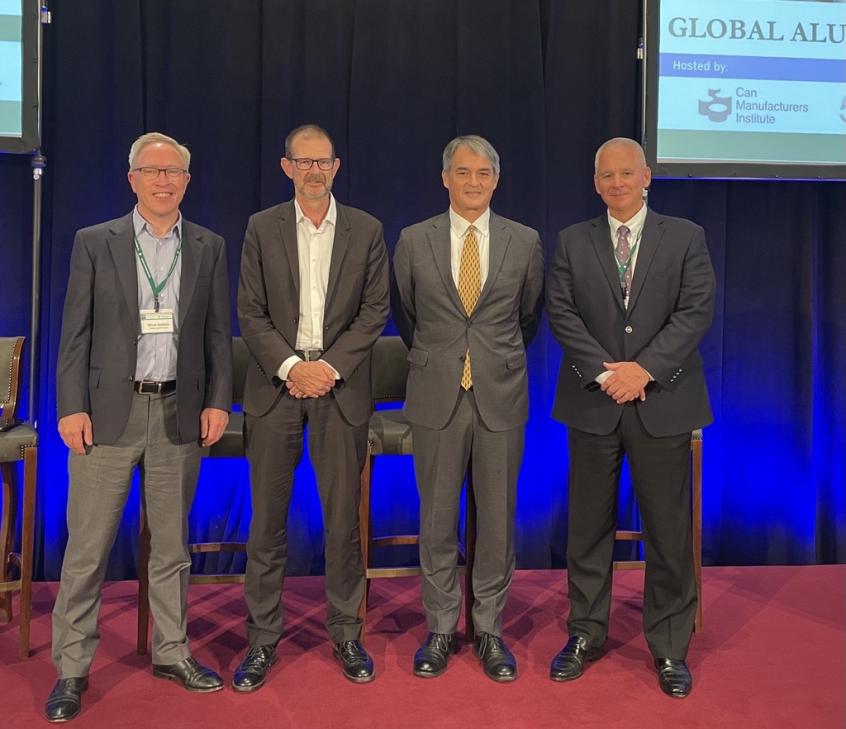Global Food Waste: Metal Makes a Difference

Global Food Waste: Metal makes a difference
Food waste is far-reaching and complex global issue:
-
1.3 billion metric tons of food is lost or wasted every year.
-
Food losses and waste cost about US$680 billion in industrialized countries and US$310 billion in developing countries.
-
The global carbon footprint of food wastage has been estimated at 3.3 billion metric tons of CO2 equivalent or approximately four times the CO2 equivalent emitted yearly by the entire global airline industry.
The challenges will only continue as the world’s population continues to grow:
-
Today, 1 in 9 people do not have enough food to live a healthy life.
-
By 2050, the population is expected to have increased to approximately 9 billion – from 7.7 billion currently.
-
Nourishing this population will require food production to increase by close to 60% when compared to 2005 levels.
Decreasing food waste can help to significantly reduce the strain this increased production will place on the land and other resources. The inherent benefits of metal packaging give it a natural advantage over alternative formats from multiple angles:
-
Combats food waste
-
Unbeatable barrier to oxygen, light and bacteria, extending product shelf life and preventing premature spoilage.
-
Optimized sizes, whether fit for family dinner recipes or for individual portions, helps consumers buy only what they need.
-
Ability to be transported and stored at ambient temperatures helps feed people where food is scarce.
-
Makes healthy foods more accessible
-
Canned produce is picked and packed within hours of harvesting, locking in freshness and nutrients. Fresh produce, in contrast, loses nutrients from the moment it is picked, throughout transportation and refrigeration, until the moment of consumption.
-
Dependable seal locks in freshness without the need for preservatives, supporting organic and more natural, healthy foods.
-
Ready-to-eat nature of canned foods enables busy consumers to prepare nutritious meals quickly.
-
Supports food safety
-
Metal packaging has an unprecedented food safety record due to the high temperatures of retort cooking, which effectively sterilizes the food in cans.
-
Cans offer 100% contamination protection, an important responsibility when foodborne illness reportedly costs Americans $15.6 billion annually.
-
Tamper-proof and tamper-resistant features indicate when a package has been compromised and help consumers feel confident about the quality and safety of their food products.
-
Champion of the circular economy
-
80% of all metals produced are still available today.
-
Metal can be recycled infinitely in a closed material-to-material loop.
-
It is possible for recycled beverage cans to return to store shelves – as new beverage cans – in as little as 60 days.
For more on this topic, read “Food Waste: Turning a Challenge into an Opportunity."
Sources
Food and Agriculture Organization (https://www.fao.org/home/en/)
The Food and Agriculture Organization (FAO) of the United Nations, “Food Wastage Footprint: Impacts on Natural Resources” © FAO 2013
https://www.latimes.com/world/la-fg-global-world-hunger-day-20170528-st…
http://www.environmentreports.com/enough-food-for-the-future/
https://www.cdc.gov/food-safety/about/what-cdc-is-doing.html
https://metalpackagingeurope.org/article/metal-packaging-true-circular-…
https://www.metalpackagingeurope.org/sustainability
https://www.wastecare.com/Articles/Aluminum_Cans_Recycling.htm



